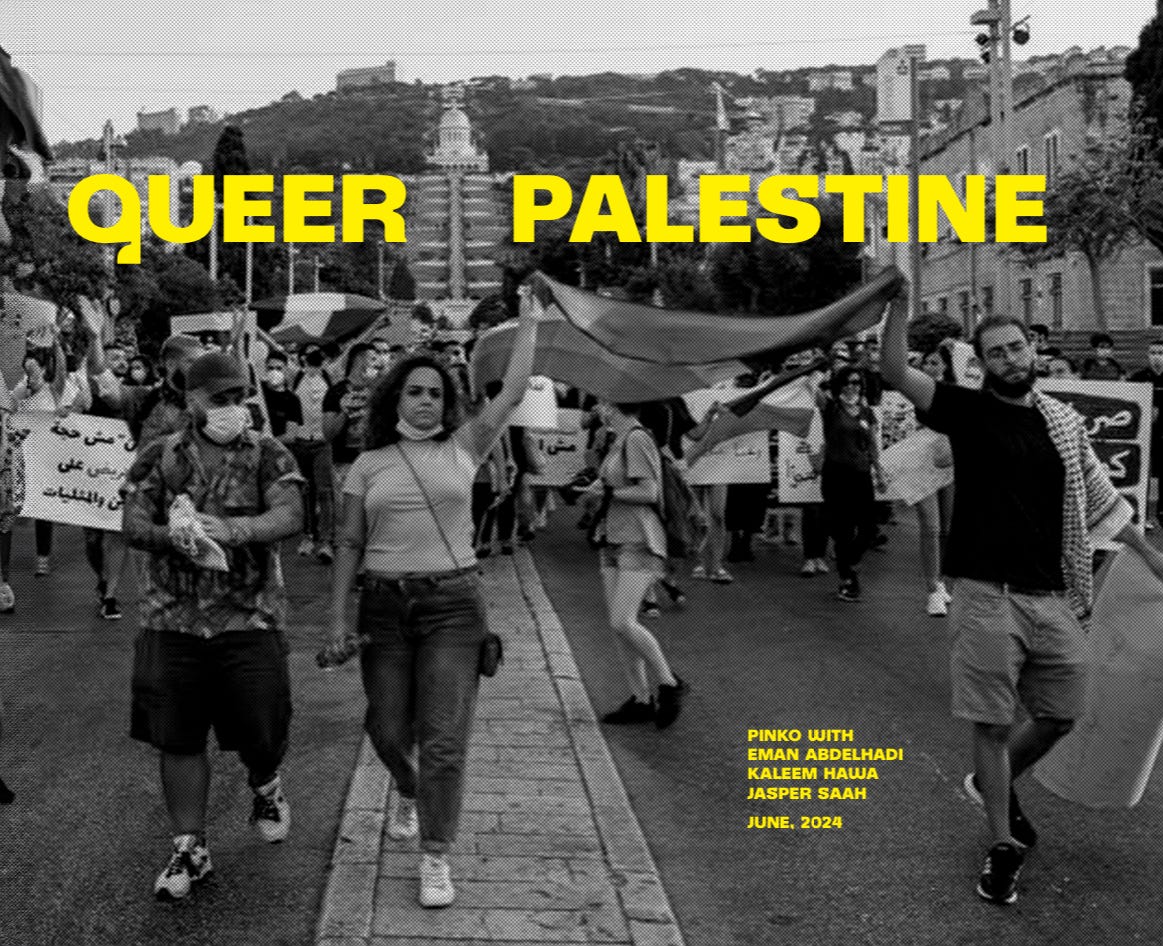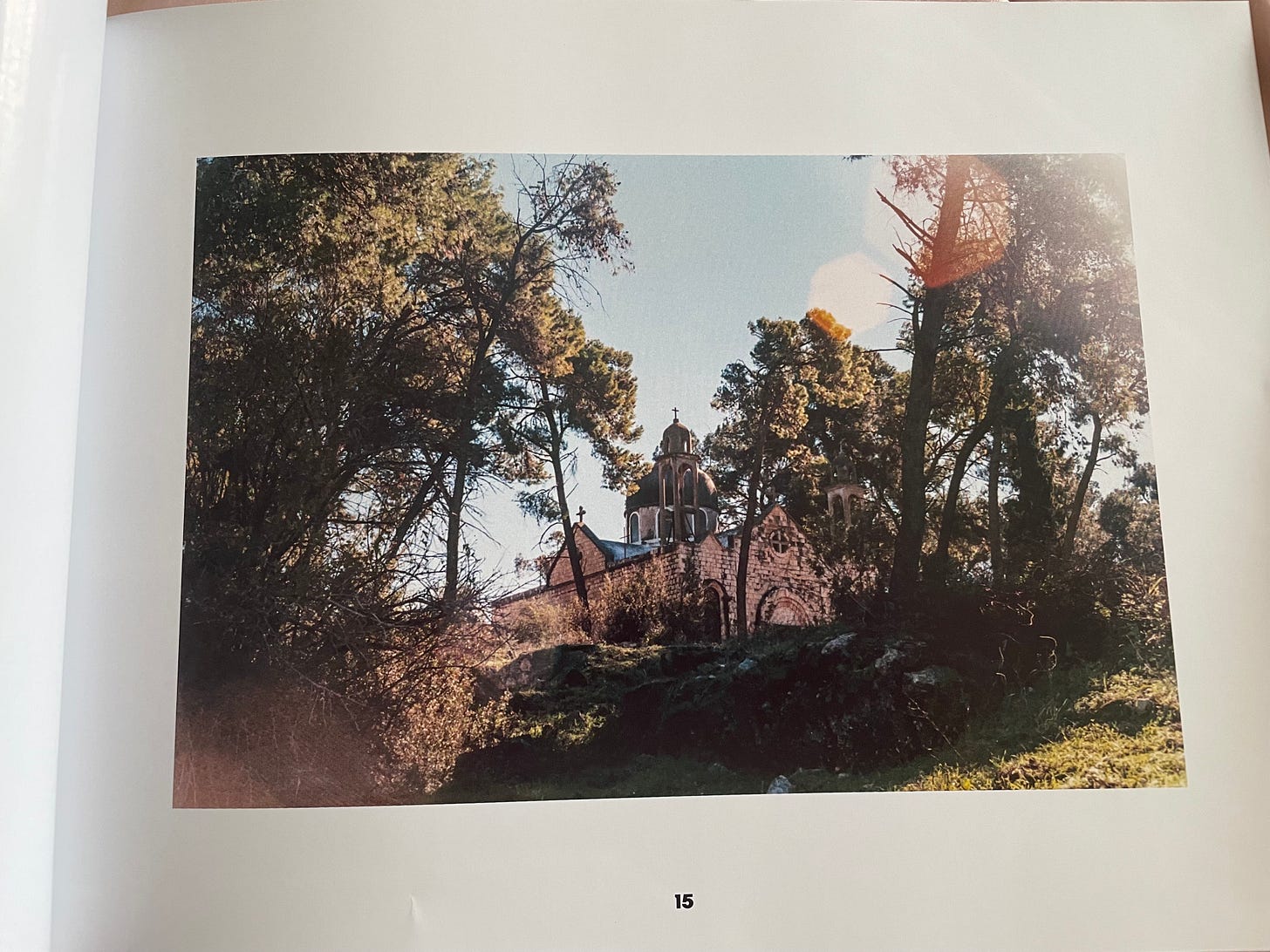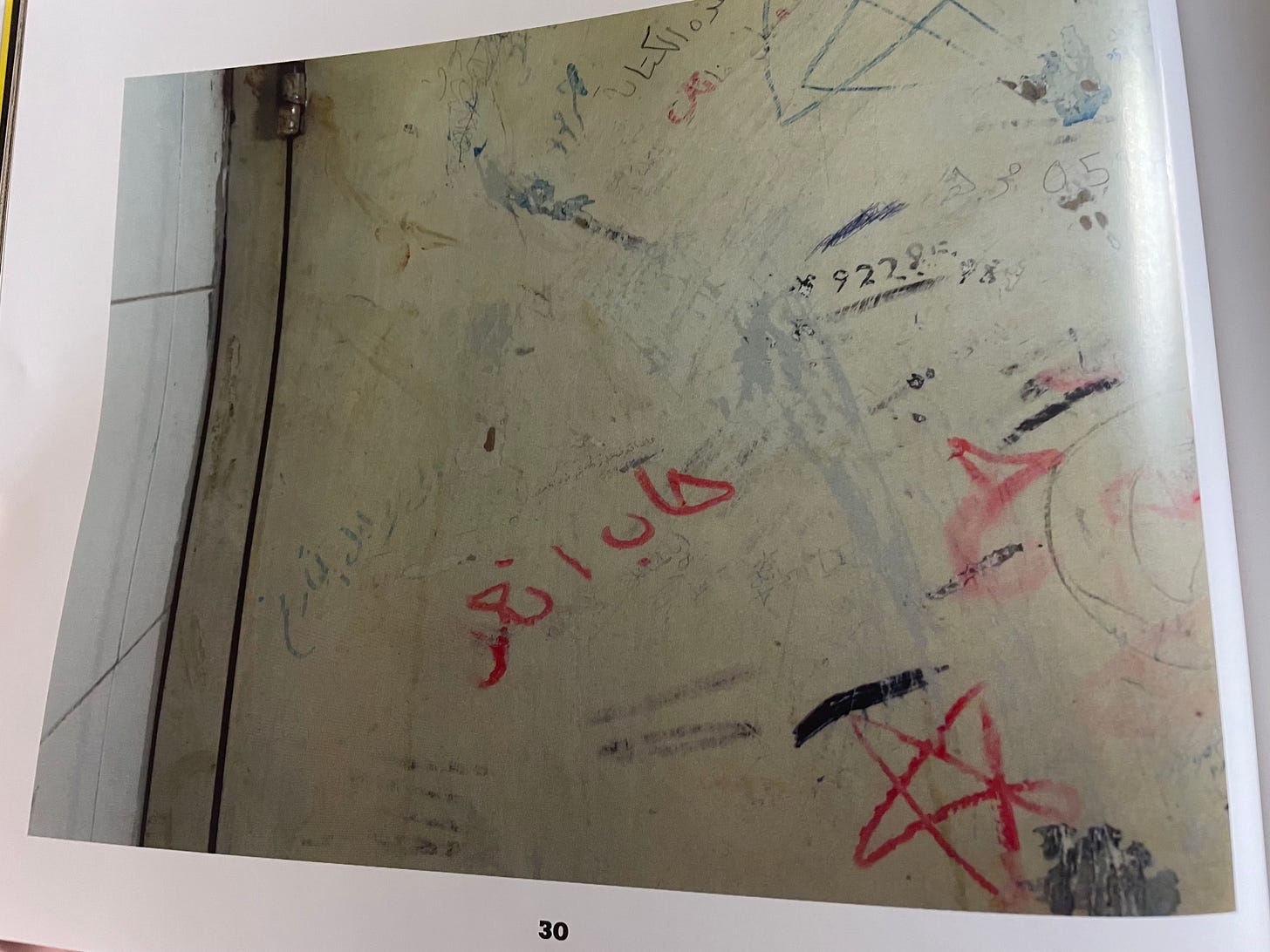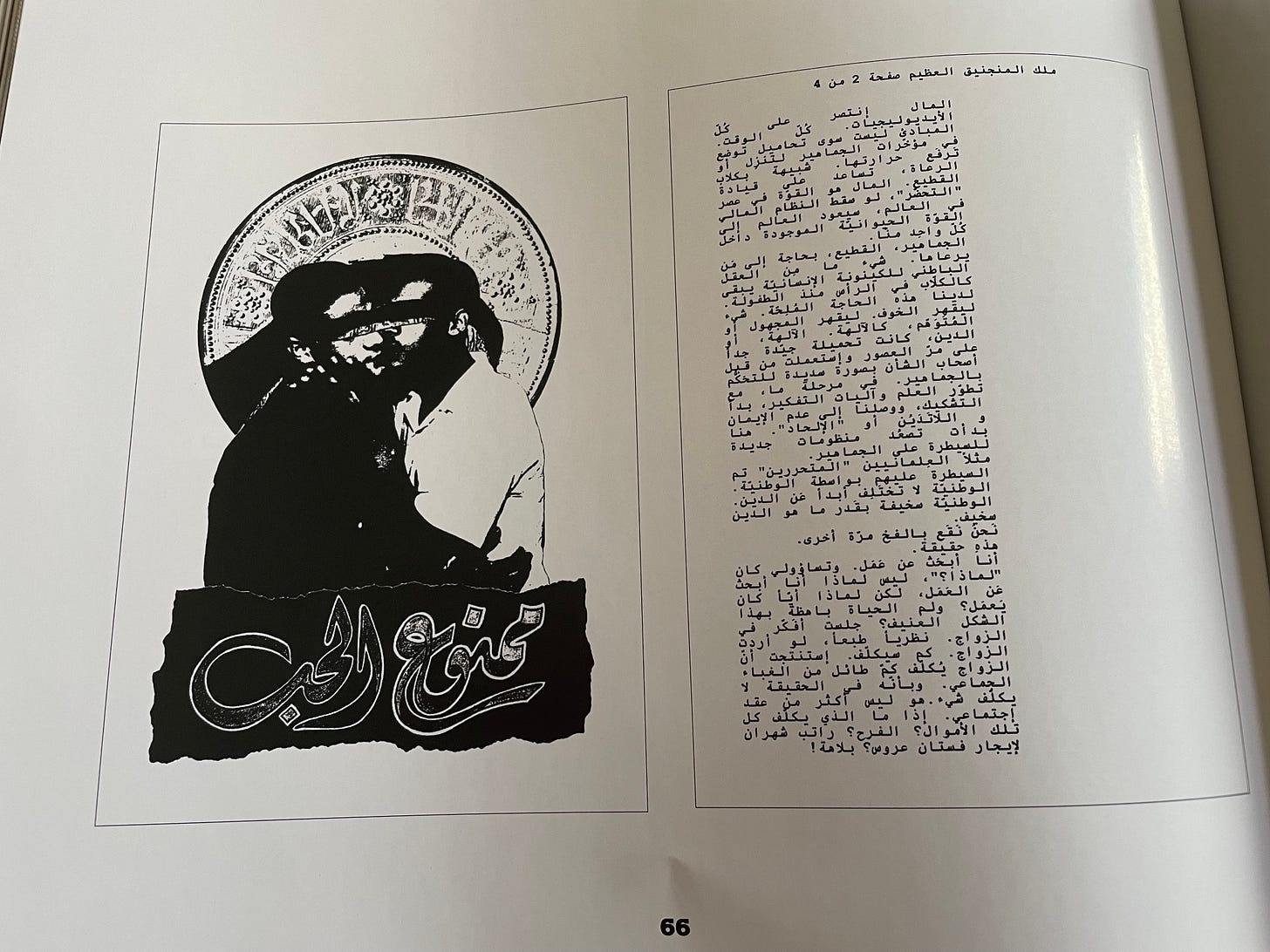Exploring the 'Queer Palestine' Zine
On Visibility and Contradiction
This is the Sunday Edition of Paging Dr. Lesbian. If you like this type of thing, subscribe, and share it with your friends. Upgrade your subscription for more, including weekly dispatches from the lesbian internet, monthly playlists, and a free sticker.
When the current wave of genocide in Palestine began last year, there was a renewed interest in Queering The Map, a digital project where anonymous users can post their queer experiences or feelings from anywhere around the globe. Internet users from around the world zoomed in on the Gaza Strip, screenshotting posts from that besieged area as a record of queer Palestinian existence.
Now, a new book from Pinko serves as a physical archive of queer Palestinian existence, raising funds for queer Gazans as it protests their invisibility. The zine, entitled Queer Palestine, contains writing, interviews, and art from Palestinians in Gaza and in the diaspora. The introduction states: “Against the annihilatory Zionist drive targeting Palestinian life in general, which ratified itself perversely in the name of its queers, we wanted to host a record of that which was said to be a contradiction in terms.” Later, the creators write: “This zine assembles a queer Palestinian existence – itself a threat, itself an articulation of all those around the world who resist extermination.”
The zine also includes a statement from Queers in Palestine, first published in November of 2023. The statement disavows the notion that Isreal’s genocide of Palestinians is somehow being waged on behalf of queer individuals. They write: “We refuse the instrumentalization of our queerness, our bodies, and the violence we face as queer people demonize and dehumanize our communities, especially in service of imperial and genocidal acts.”
The book includes two interviews with queer Palestinians living in Gaza, giving them ample space to share their stories within its pages. Both interviewees express how painful it has been growing up queer in Gaza but simultaneously declare their love for their homeland despite these struggles. Both share a desire to live freely and openly, something they cannot do under a genocidal regime.
The zine includes a spotlight on alQaws, a queer Palestinian organization that works to support queer Palestinians and change cultural norms about gender and sexuality. alQaws rejects a streamlined, western understanding of activism, arguing that “We must continue to divest from identity politics and the pressure to frame our work only as LGBT and queer and not as an active part of building our liberation.” Rather than suggesting that queer Palestinians are worthy of liberation only because of their marginalized position, alQaws highlights the interconnectedness of all freedom struggles, pointing to the connection between colonialism and gendered/sexual violence. To the people worried about homophobia in Palestine – though this “worry” can sometimes act as a cover for islamophobia – alQaws is an example of an organization you can support instead of supporting the annihilation of a population under the guise of liberalism.
The comments under Pinko’s post on X illustrate why a book like this is necessary. One user suggested that speaking about queerness in relation to Palestine is simply “virtue signaling,” indicating an assumption that queerness is a purely Western construct that can’t exist in the Middle East. Certainly, there are many issues with exporting Western frameworks across the globe, especially when local histories are erased, but Queer Palestine is a book by and for queer Palestinians.
Other commenters noted how terrible it is to be gay in Palestine, not-so-subtly implying that such homophobia is a reason this book shouldn’t exist and why we shouldn’t support the Palestinian cause. Queer Palestine doesn’t refute the many hardships of queer Palestinians, but rather contends that they deserve to be seen and valued, not simply because of their queerness, but because they exist, and their humanity should be recognized.
You can purchase Queer Palestine here. The proceeds go to ES and QFG, the two queer Gazans interviewed in the book.







Wow. Great post. I really enjoyed this!